Expertise comes from everywhere
By Kimball Cartwright, Director of Development
School officially closed in mid-June but for many Common Ground educators and peers from three other schools across the Northeast U.S., the summer was a time for innovation!
Students and teachers from Common Ground; New Roots Charter School in Ithaca, NY; The Greene School in Providence, RI; and, the Connecticut River Academy in East Hartford, came together in August with other community leaders to design new courses and projects for the coming school year. Common Ground’s supporters (Thank you if you are a supporter!) have allowed us to connect educators from like-minded schools, and work together to improve our students’ educational experiences. Teaching Our Cities is one of our central network-building and school improvement vehicles.
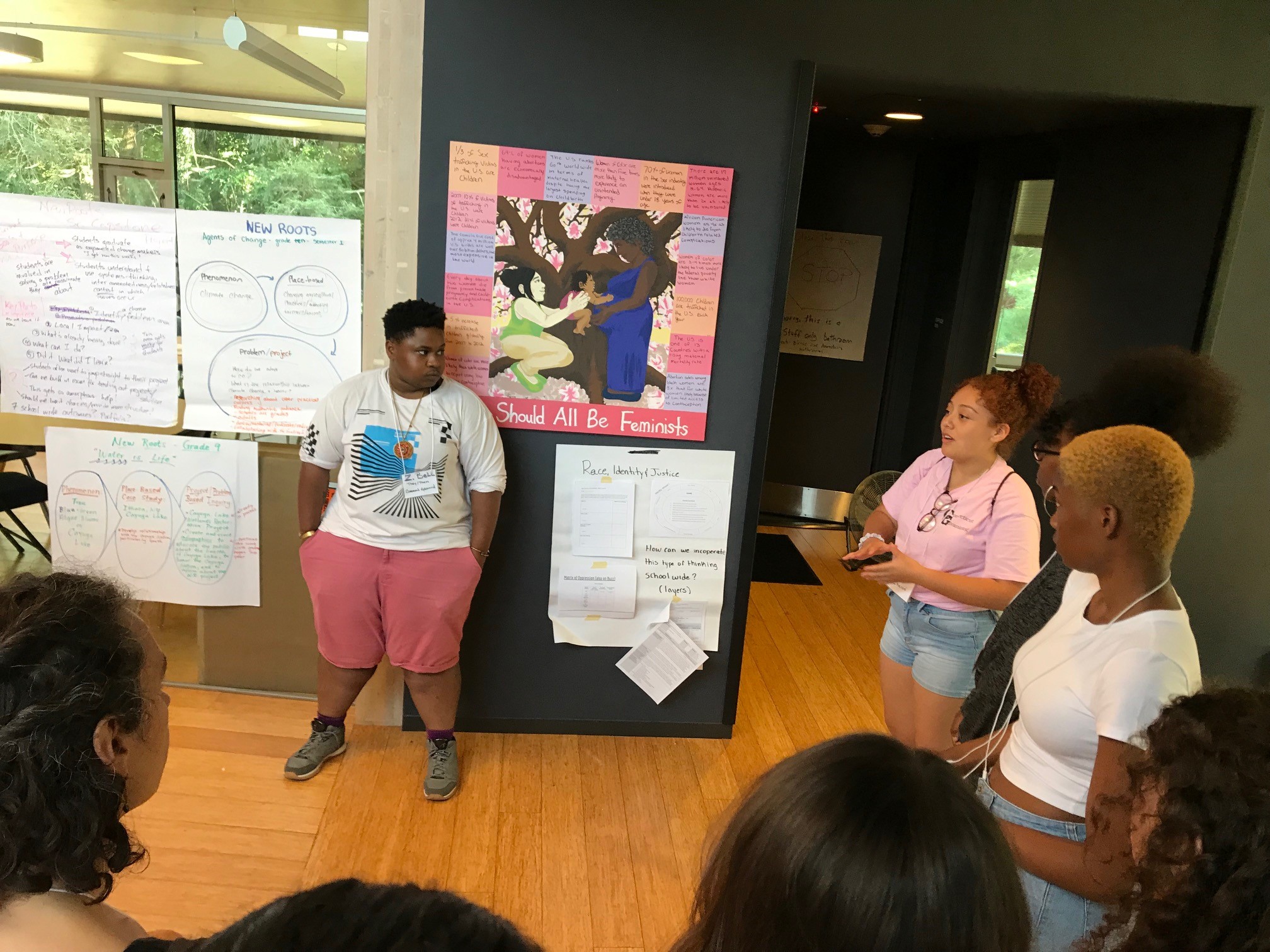
Dayanara Chacon, CG rising junior, talks the audience through emerging plans for a class on Race, Identity and Justice on Day One of Teaching Our Cities 2019.
- Common Ground’s Director of Impact & Engagement, Joel Tolman, designed Teaching Our Cities (TOC) five years ago as a learning community that would engage like-minded schools in asking two big questions of themselves:
What if we recognized that cities are dense with all the things that make learning possible — people with talents and passions to share, diversity of perspectives and experiences, problems to be solved and questions to be asked, organizations ready to provide the supports and opportunities our students need?
What if urban public schools embraced their cities, rooted themselves in their urban environments, and turned those places into an extension of their classrooms?
Answers to these questions bring forth some important design principles, and you can read more about Common Ground’s drafting of its own foundational building blocks of teaching and learning at this link. One of those building blocks – Student Agency, Voice & Leadership – stood out at Teaching Our Cities. In the pictures throughout this post, you’ll notice Common Ground students proudly sharing the results of the curriculum design and redesign processes with their peers and teachers from the four schools.
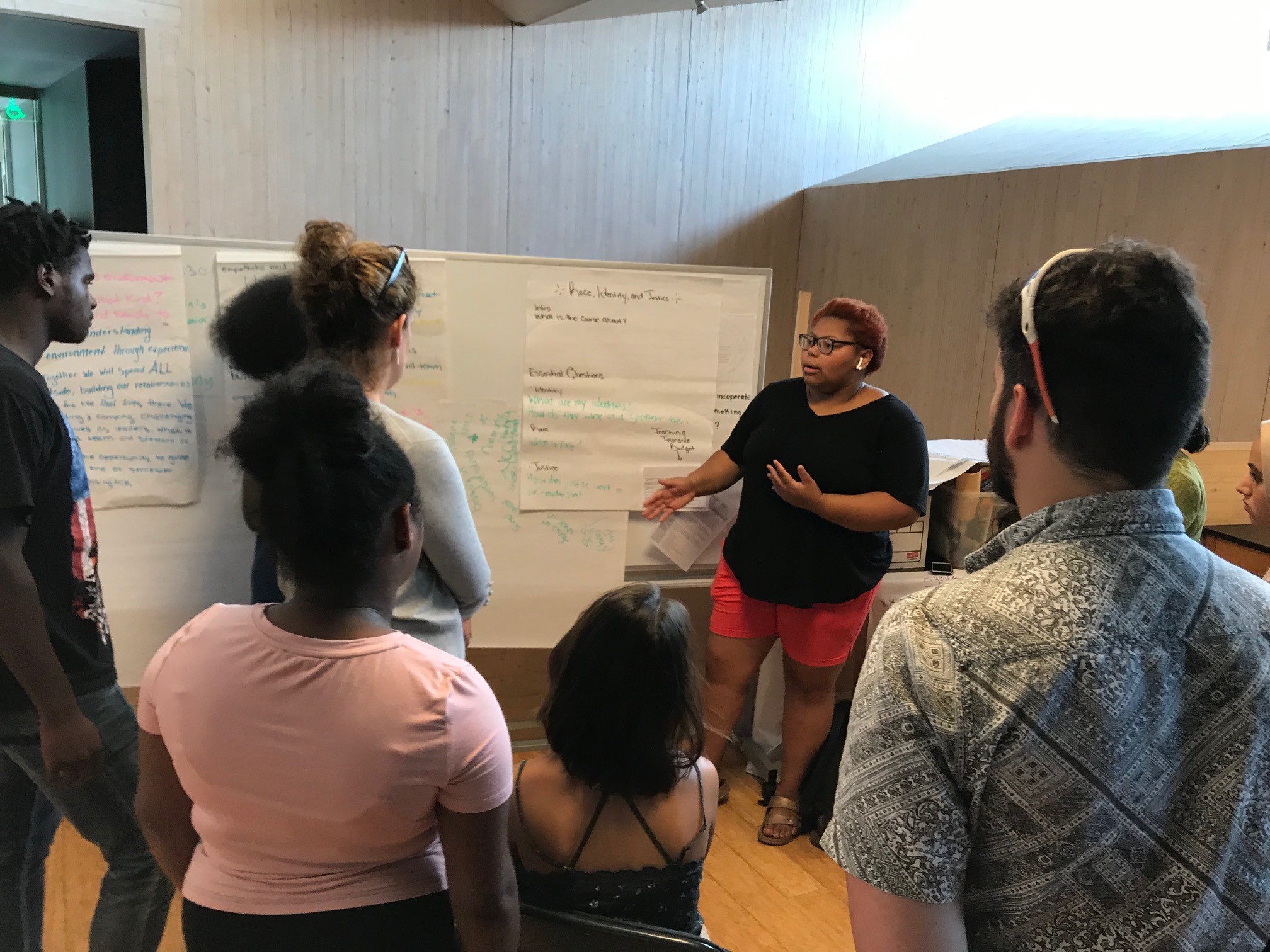
Samera Reid, CG rising senior, shares changes made to the Race, Identity and Justice class on the final day of Teaching Our Cities 2019.
Yet student and community leader voice cannot be taken for granted, and this group was highly intentional about setting up a space where students are genuinely engaged from the start. Z Bell, Common Ground’s Youth Organizer & Educator, led several sessions that put young people’s voices at the center — including one that asked adults to reflect on a specific way they can actively commit to student leadership on the curriculum design teams, and at their school.
Each student reflected on a goal they built for themselves as a leader and on how they can actively support their friends and peers. In the flurry of flip chart paper that resulted, one teacher’s offering spoke volumes about the intent of the conference: “for today – work on letting others speak.”
You may remember Common Ground’s curriculum is already very interdisciplinary and has been working to put students at the center for a while. Remember this blog post, “Classes I Wish I Took” from 2017?
This summer, Teaching Our Cities sparked even more creativity. For example, Common Ground will have a new experiential learning class this year named, “Food, Culture & Identity.” Disha Patel, Common Ground’s new Food Justice Education Coordinator, organized a culturally diverse group of students and community food leaders to talk about the important elements and outline of the class.

CG rising senior Jaelyn Roberts describes plans for Common Ground’s new Outdoor Leadership course to TOC participants.
“Food is an intimate language that everyone understands, everyone shares. It is the main ambassador of first contact between cultures. You can really learn about the lifeline of a city through its food pathways and our group was all about analyzing the many ways food sustains their cultures, especially for the native and immigrant experience,” said Disha. “The group, which included Dominican chef Eduardo De Lara, Indigenous Educator Rachel Sayet, a student from IRIS’s Youth Leadership Program and students from Common Ground, discussed how ‘authentic’ is such a sticky word with food in an American context. What does American food mean to you, and is it actually American, or was it just adopted from another country? It’s a really interesting question to think about! ” Disha added, “Ultimately this interdisciplinary class seeks to take place in kitchens, markets and the Common Ground farm and builds on other interdisciplinary classes offered at Common Ground, like Food & the Environment, and is an optimistic vehicle for developing our students’ critical thinking skills and systems analysis.”
Other Common Ground curriculum breakthroughs included “Race, Identity and Intersections” becoming “Race, Identity and Justice” with “Intersections” set to become its own course in the future. “Outdoor Leadership” — which will include a multi-day backpacking trip, lots of reflective writing, and an ongoing discussion about how we can welcome people of all identities into outdoor leadership — will be taught for the first time this fall!
Race, Identity and Justice teacher Z Bell reiterated that “The TOC Summer Institute was deeply generative and engaging!” By way of example, they added, “students and I spent a lot of time talking about not only the teaching content, but also grading systems, budget breakdowns, final projects, class trips, unit essential questions, worksheets, classroom dynamics, etc.”
Z emphasized the long term benefits to the student, and to our whole community: “It’s vital that students see themselves as leaders in their own learning trajectory – making sure young folks have a role in their education means that they develop a deeper sense of agency, a stronger relationship with self and a more meaningful investment in their own leadership.”
Tara Amatrudo, the principal at CT River Academy, wrote Joel Tolman the day after the end of the conference, saying “I truly admire Common Ground’s sincere commitment to progress in all of our schools, and I know it comes from an even deeper commitment to our youth and our planet. The connections I have made with leaders from other schools that are part of Teaching Our Cities have helped me stay grounded in our mission when it can be so easy to let distractions get us off course.”
Thanks again to so many Common Ground supporters, we are happy to build a better high school education with the partnership of strong student, community and teacher leaders from so many schools! Special thanks to the Barr Foundation and the Teaching Tolerance Fund of the Southern Poverty Law Center for their support of the work described in this article!


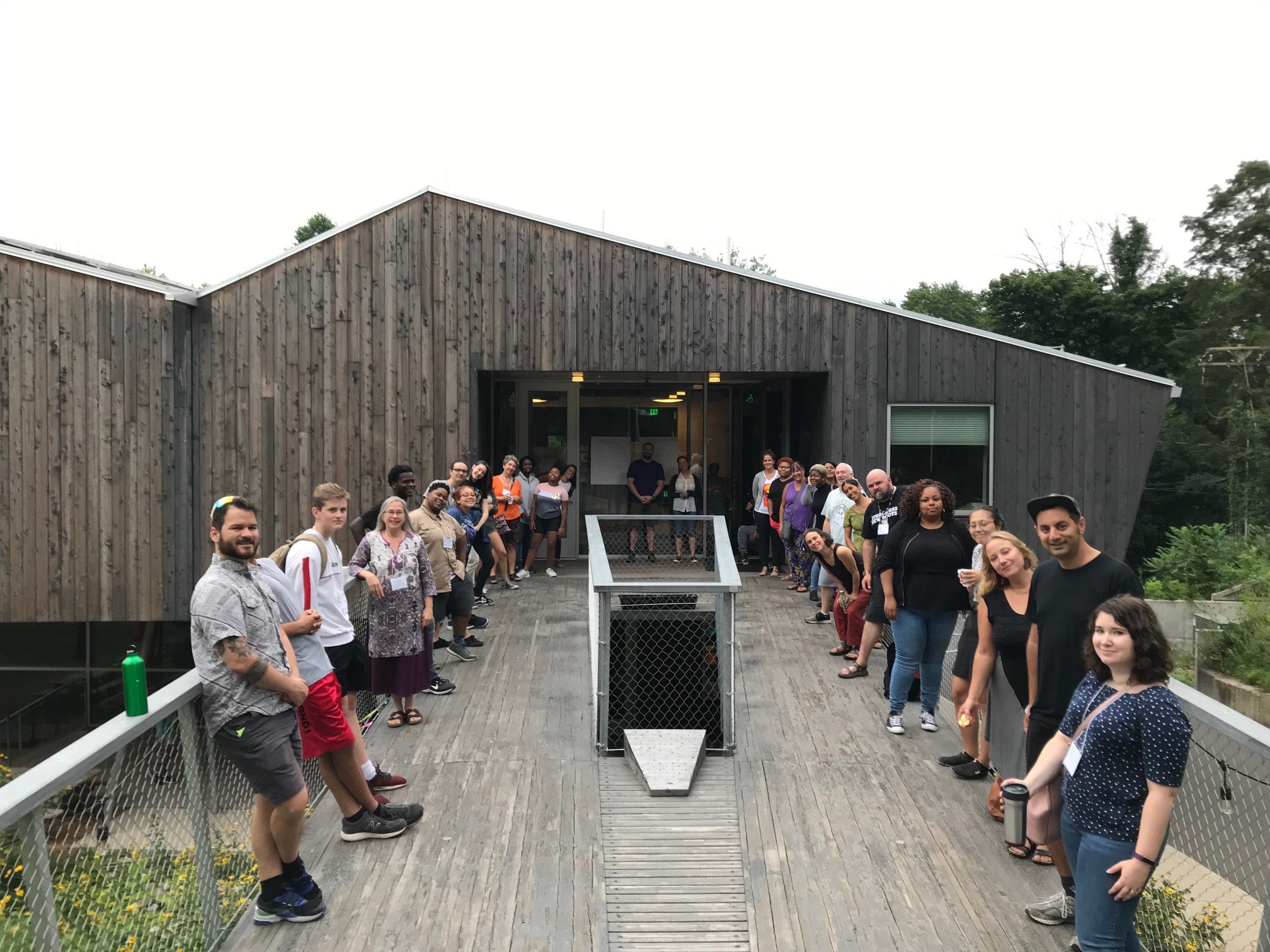
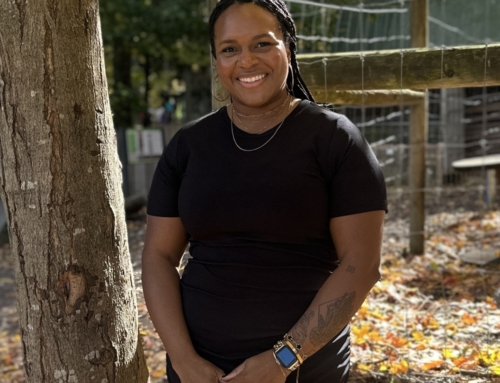
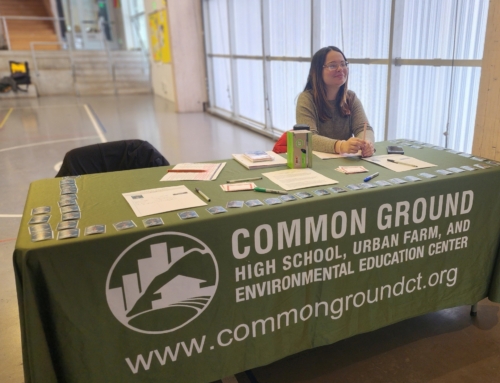
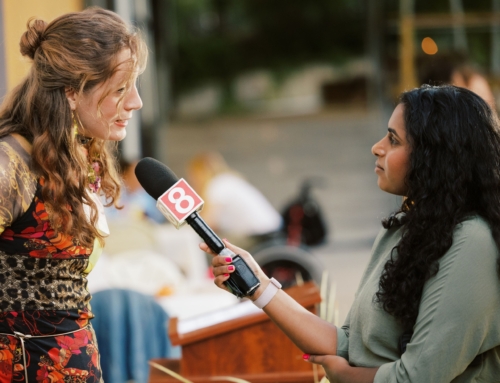
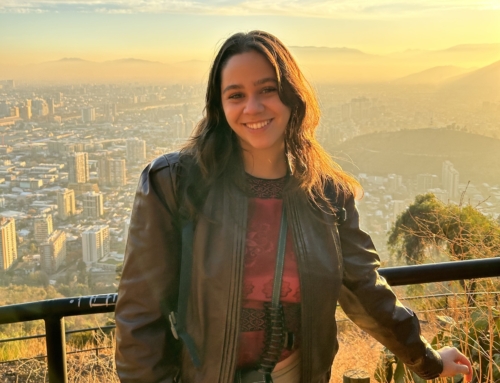
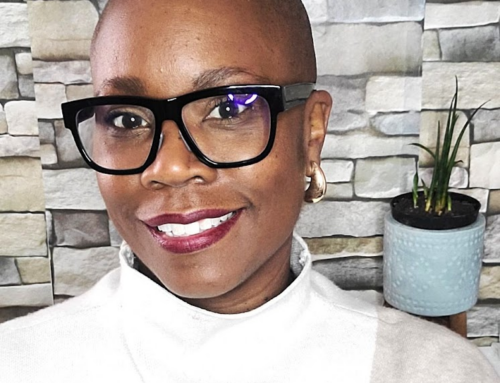
Leave A Comment